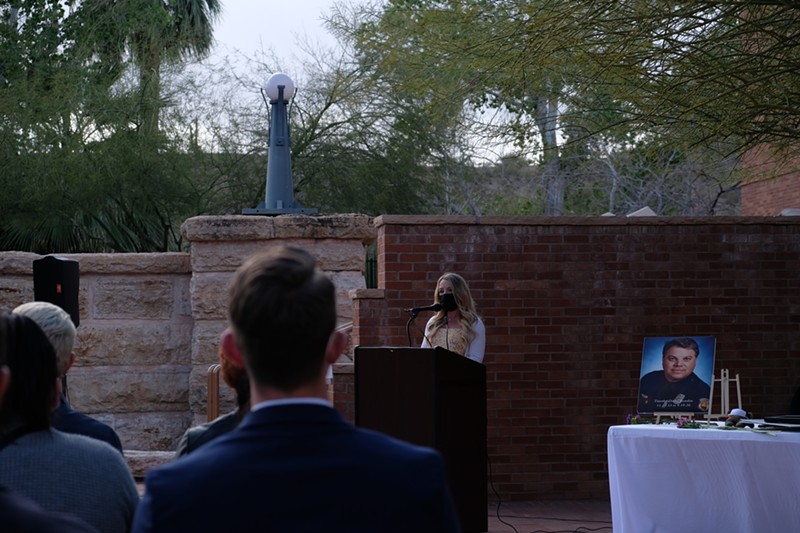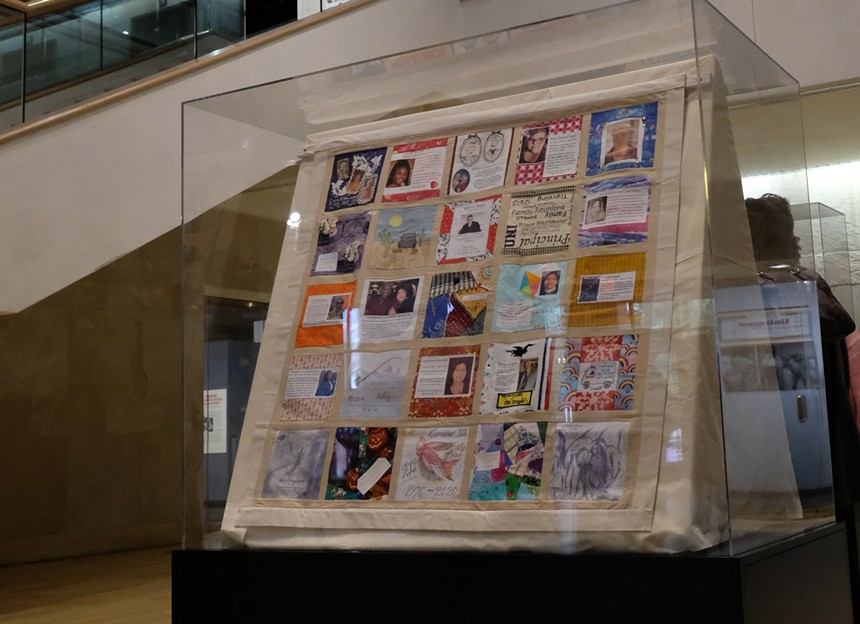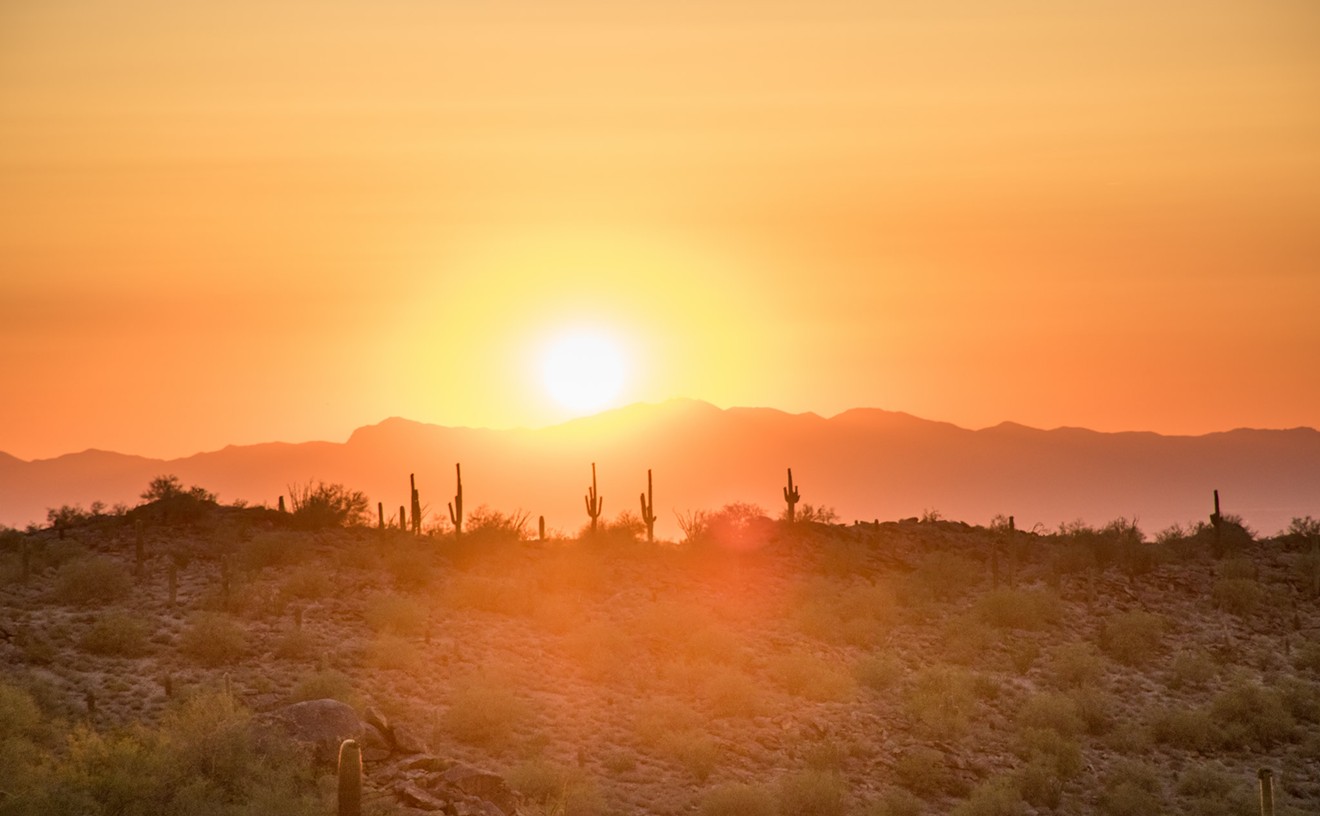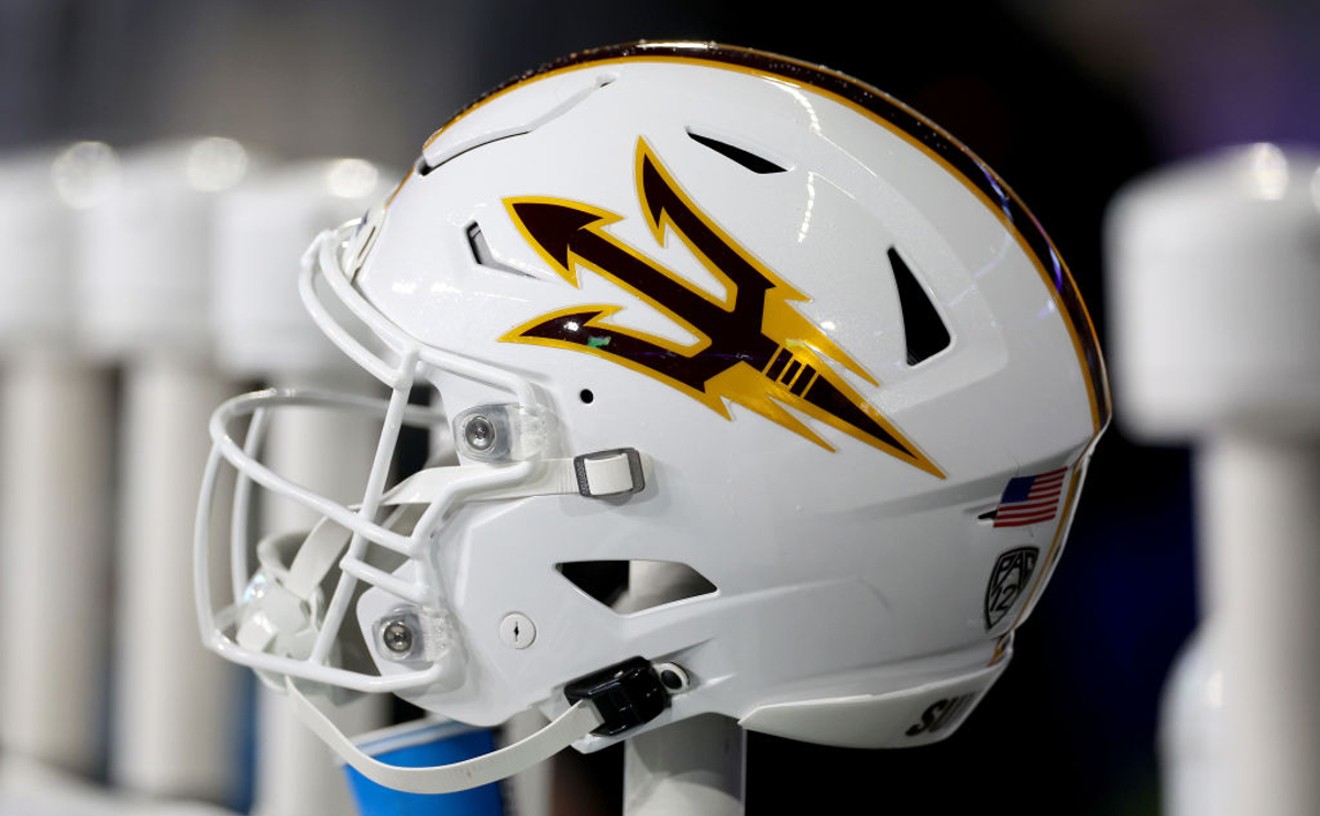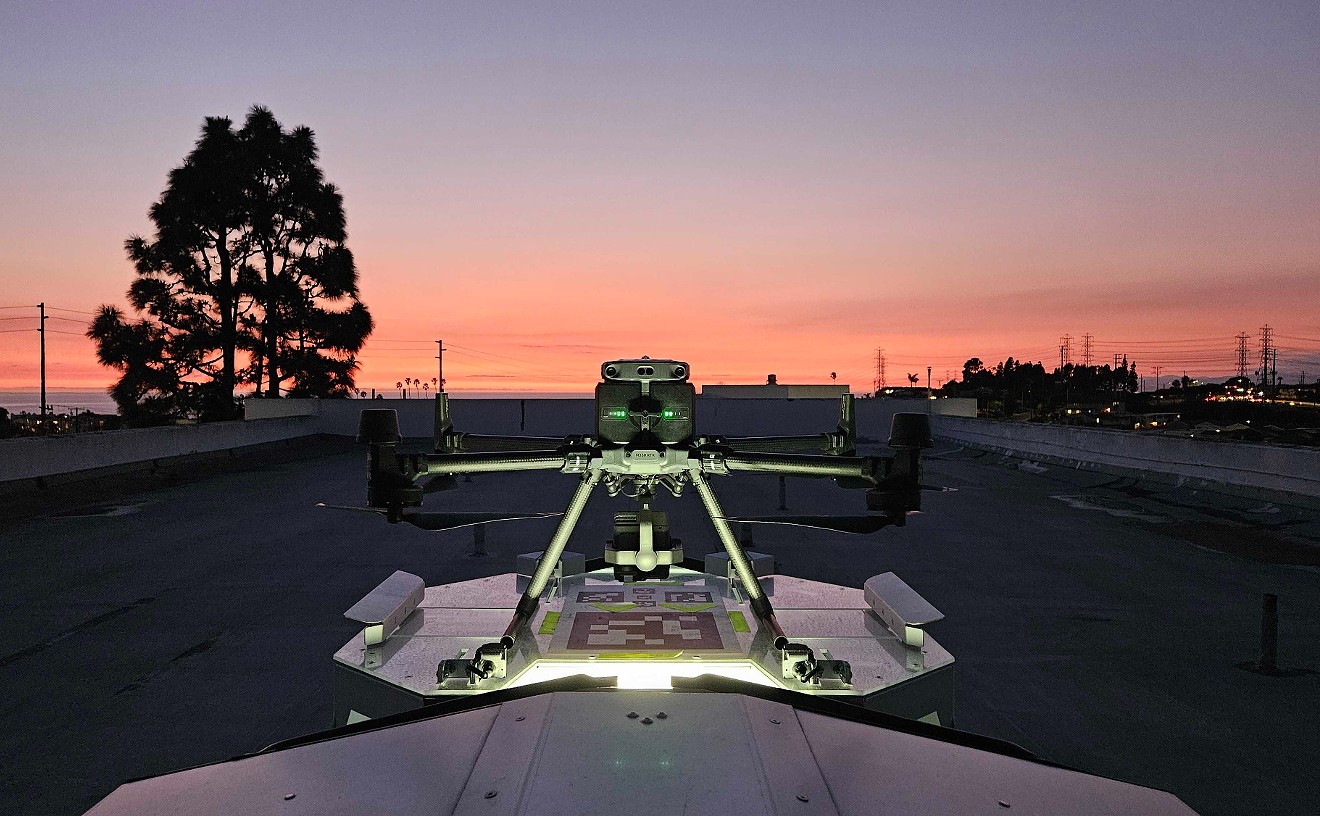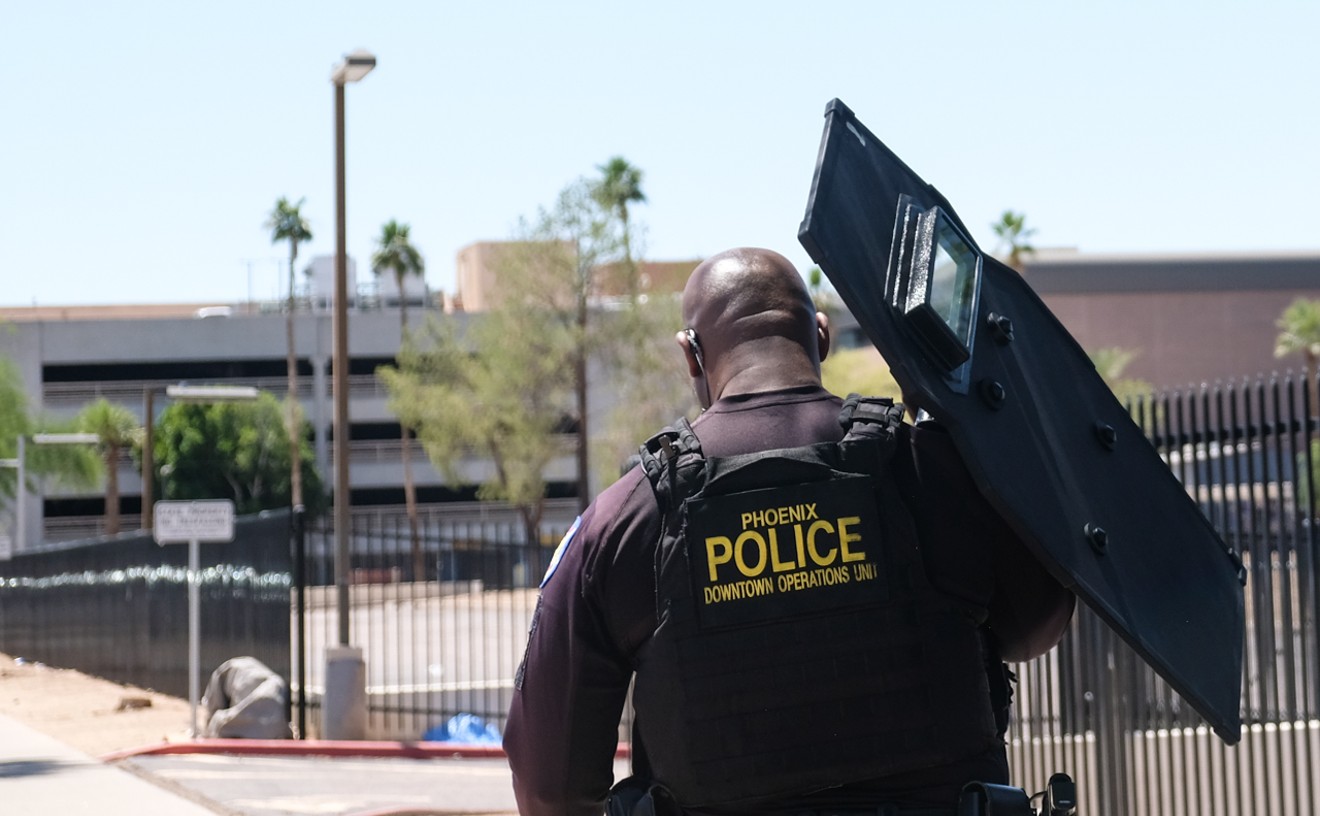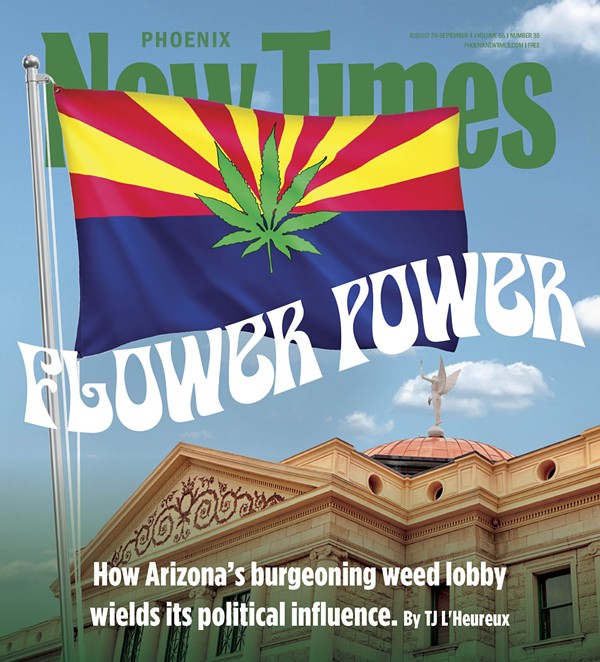In an obituary that was at once beautiful and blistering, Kristin Urquiza blamed her father's death on the failure of Arizona's top brass in government.
“His death is due to the carelessness of the politicians who continue to jeopardize the health of brown bodies through a clear lack of leadership,” she wrote.
Her Twitter bio still reads: "Doug Ducey killed my Dad."
Over the past year, Mark Urquiza's death has sparked a national movement. The organization his daughter co-founded, Marked By Covid, has become a leading voice pushing to memorialize those who have passed, and fight for people still struggling to survive as the pandemic lingers.
The work of memorializing more than 28,000 people who have died from COVID-19 in the state of Arizona — alongside nearly 1 million who have died nationwide — is not an easy one.
But this is what Marked By Covid has set out to do.
The organization, still led by Urquiza, now has branches in more than a dozen states. It is fighting for a nationwide COVID-19 memorial day, and its efforts have made headlines around the country.
“The amount of life lost is just not normal," Urquiza told Phoenix New Times.
Her organization's work she said, was "fundamental not only to honor their memory and protect their legacy, but is essentially to prevent this normalization of mass death."
On Monday afternoon, dozens gathered at the Arizona Heritage Center in Tempe to attend one of Marked By COVID’s regular memorials. A heart woven of flowers sat in the center of the courtyard.

On Monday, Marked By Covid hosted an event honoring Arizonans who have died during the pandemic.
Katya Schwenk
Kristin Urquiza, who grew up in Arizona but lives now in San Francisco, was not in attendance. But her mother, Brenda, was there, watching quietly. She told New Times that she never misses the events.
Memorial events are at the heart of Marked By Covid's work, organizers say.
“The traditional ways in which we mourn or grieve or come together were taken away from most of us because of the nature of the virus,” Kristin Urquiza said.
“Bringing people to have memorials like this doesn’t fix the problem, but it does help people to publicly witness their pain and their loss.”
The leader of Arizona’s Marked By Covid branch is Tara Krebbs, a lifelong Phoenix resident. She lost her father, like Urquiza, in the summer of 2020. Her parents lived in Glendale at the time.
Like many who lost loved ones early on in the pandemic, the experience was lonely and painful, Krebbs said. Her mother wasn’t able to visit her husband in the hospital to say goodbye. The family could not gather their relatives and friends for a proper funeral.
“It’s just devastating on so many sides, you know,” Krebbs said. “There are people whose family members went in [to the hospital], and then they never saw them again.”
At Monday’s event, photos of loved ones were displayed on altars, with flowers arranged around them.
The memorial also marked the start of a new exhibit at the Arizona Heritage Center, which is run by the Arizona Historical Society. Through August, parts of the Covid Memorial Quilt will be on display at the center in Tempe.
The Covid Memorial Quilt was inspired by the AIDS Memorial Quilt, a tapestry of 50,000 panels memorializing those who died of complications of HIV in the 1980s. The project, begun by a middle school student in California, has bloomed into a nationwide living memorial project.
Currently, other pieces of the memorial quilt are on display in three other states. Twenty-four panels, each memorializing 25 people who died of COVID-19, are available to view in Tempe.
Todd Bailey, the museum’s special projects coordinator, said in his remarks that the partnership with Marked By Covid came out of “trying to connect and share our experiences when we really didn’t have much leadership."
His mother, Joyce, sang at the opening of the memorial. She and her sister, both in their 70s, had contracted COVID-19 at the beginning of the pandemic, Bailey told New Times. Only his mother survived.
Initially, she had lost her voice. But she has since recovered enough to sing.

Joyce Bailey lost her voice when she contracted COVID-19 last year. Now, she can sing again.
Katya Schwenk
The quilt and projects like Marked By Covid remind us of the humanity often lost in the numbers of people who have died of the virus, Krebbs said.
Arizona has seen more than 28,000 deaths since the start of the pandemic. In Maricopa County, records show, these included a 1-year-old child, a 26-year-old who had dreamed of opening a reptile business, a beloved grandmother with 19 grandchildren, and thousands more.
The pandemic, as Urquiza has emphasized, has taken a more serious toll on communities of color. In the Phoenix area, Latino communities were hit hard by the first waves of the pandemic. The impact on these communities lingers.

On Monday, Marked By Covid hosted an event honoring Arizonans who have died during the pandemic.
Katya Schwenk
This initiative has garnered success, so far. U.S. Representative Greg Stanton of Arizona, a former Phoenix mayor who represents much of the East Valley, is the lead sponsor of a congressional resolution that would create this COVID-19 memorial day, House Resolution 174.
Advocates have suggested the national day of remembrance fall on the first Monday in March, around the anniversary of the virus’ onset in the U.S. in 2020.
Support for the legislation has fallen along strict party lines. Not a single Republican has signed on as a sponsor, though the resolution has support from nearly 70 Democrats.
That’s not for lack of trying, Urquiza said. Marked By Covid has reached out to dozens of Republican offices, but received little interest, despite her emphasis that their work is nonpartisan. At a local level, she said, Republicans in cities and some states have embraced the work.
She said the group is in ongoing talks with Republican Representative David Schweikert, who represents a swath of northeast Maricopa County, including Cave Creek and Fountain Hills. But he has not yet committed to supporting the bill.
A representative from his re-election campaign did not reply to inquiries from New Times regarding Schweikert's stance on the issue.
Urquiza emphasized, though, that the group has not forgotten that the pandemic still exists. “I believe deeply that this work is an essential part of not only healing — but helping to unite us,” she said.
Krebbs said she believes it is possible to memorialize at the same time as fighting for people who are still living through the pandemic. As Urquiza did when, in her father’s obituary, she demanded political action.
As Kristin Urquiza’s mother, Brenda, told New Times last summer, Mark Urquiza would have been proud. “He would love it. He loved the attention,” she said. “He's telling God and everyone up there, ‘That’s my daughter, raising hell.’”
Editors Note: This story has been updated to accurately reflect the month Mark Urquiza died.

